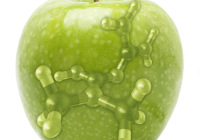A quick green screen for biorefinery enzymes

Cellulose and chitin are the most abundant polymers on Earth and their potential is vast for the biofuel industry. Cellulose is the major component of plant cell walls and its degradation into sugars is at the core of biofuels production. Chitin forms much of the shells of crustaceans, exoskeletons of insects and even butterfly wings… Read more »




